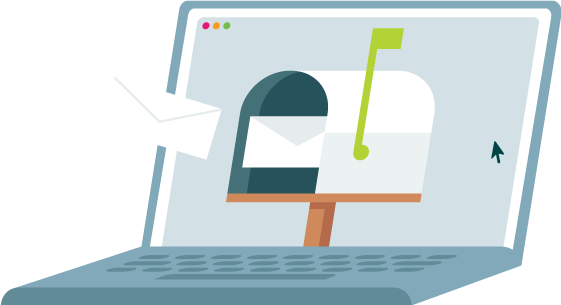Accounts payable is a foundational function that ensures organizations maintain accurate invoices, payments, and vendor relationships, while making bill payments on time. However, amidst today’s rapid and intricate business transactions, particularly in high volumes, managing accounts payable processes can pose significant challenges.
Without proper oversight and regular checks, accounts payable can turn into a source of financial complexity and risk. That’s where accounts payable audits come into play. By ensuring that accounts payable processes are accurate, safe, and compliant, you can keep the financial gears of your business running smoothly.
What Is an Accounts Payable Audit?
Accounts payable (AP), is the money that a company owes to its vendors and suppliers for goods or services provided. It’s a fundamental part of a company’s working capital and financial health, with the AP department responsible for processing invoices, making payments, and managing relationships with vendors.
An accounts payable audit is the process of validating invoices to ensure they are accurate and that the right controls are in place to guarantee an organization’s financial records are in order. Key components of an audit include reviewing invoices and payments for accuracy and legitimacy.
Why It’s Important to Audit AP
The benefits of conducting regular accounts payable audits are manifold and can significantly impact a company’s financial health. Some of the key advantages of audits include:
Reducing Risk of Fraud
Internal controls are standard operating procedures that help mitigate the risk of human error, reduce fraud, and prevent improper payments. Without these crucial controls and oversight, accounts payable processes can be vulnerable to fraud or embezzlement. Audits uncover and rectify these inaccuracies.
Reduce Risk of Duplicate Payments
The risk of duplicate payments is a serious concern in accounts payable. These mistakes can be caused when there isn’t enough visibility into the accounts payable workflow. Audits serve as necessary guardrails, identifying and correcting inaccuracies to prevent unnecessary drain on financial resources and maintain the financial integrity of the organization.
Build Trust in Business Processes
Having a trustworthy and efficient end-to-end accounts payable process is vital for a company’s reputation and credibility. It legitimizes your business, demonstrates that you have controls in place to reduce fraud and error, and assures stakeholders that your financial statements are reliable. Trust in business processes is essential for attracting investment and maintaining a positive market reputation.

What Do You Audit in Accounts Payable?
The audit process is comprehensive and detailed, involving a series of steps that aim to validate and improve the accounts payable function in each of the following areas:
Completeness
When auditing accounts payable, auditors must ensure that everything that should be present is indeed there. This includes verifying that all invoices and payments are accurately recorded and that no transactions are missing from the records.
Compliance
Even if every transaction is present, auditors must assess whether each transaction is accurate. This involves scrutinizing invoices, payments, and supporting documentation to ensure they comply with internal policies and external regulations.
Accuracy
Auditors examine the accuracy of vendor information, invoices, and payment details. They ensure that payments are made to the correct vendors, invoices are legitimate, and coding is accurate. Auditors may even reach out to vendors to verify the authenticity of invoices and to confirm that payments are accurate and timely.
Getting Ready for an AP Audit
Preparing for an accounts payable audit is essential to ensure a smooth and effective process. Here are some steps you can take to get ready:
Communicate with your team
Make sure your accounts payable team knows that an audit is coming. Effective communication helps ensure that everyone is prepared for the process and knows their roles and responsibilities.
Know Your Processes
Understanding your organization’s accounts payable processes is crucial. Make sure you’re following documented procedures consistently throughout the year.
Keep Records Up-to-Date
Maintain up-to-date records throughout the year. This not only streamlines the audit but also helps ensure the accuracy of your financial records and the efficiency of your accounts payable processes.
Provide Access to Information
Auditors will require access to a wide range of information, including invoices, payment records, vendor contracts, and communication logs. Having a method or system in place to provide this information efficiently will expedite the audit process.
Ensure Compliance
Make sure that your accounts payable processes are in line with internal policies and external regulations. Conduct internal checks and reviews to identify and rectify compliance issues before the audit.
How Do You Audit Accounts Payable?
Auditing accounts payable involves a series of crucial steps to ensure that financial processes are accurate, transparent, and compliant. If AP isn’t accurately accounted for, it can pose challenges for the business.
Key phases of an accounts payable audit should include:
Overall Planning
Before diving into the audit, it’s essential to plan meticulously. Understanding the accounts payable process, the associated documents, and the approval metrics is the foundation of a successful audit. The planning phase helps auditors identify the risk that something might be off or fraudulent in the balance. This phase is crucial as it sets the stage for the entire audit.
Testing
During this phase, auditors actively engage in the audit process. They pull transactions, request a full list of bills, and scrutinize invoices and payments. This comprehensive testing phase is designed to ensure the accuracy and legitimacy of every transaction. It helps detect anomalies, errors, or fraudulent activities.
Ensuring Invoices Are Legitimate
One of the critical aspects of the testing phase is to verify the legitimacy of invoices. Auditors may contact vendors directly to confirm the authenticity of invoices, ensuring that payments are made to legitimate entities. This is a fundamental step in preventing fraud and maintaining financial accuracy.
Risk Assessment
Risk assessment is an ongoing process throughout the audit. It involves evaluating the risk associated with vendor information, invoices, and other documents. Auditors assess the likelihood of errors, inaccuracies, or fraudulent activities and take measures to mitigate these risks.
An Overview of AP Documentation
To conduct a thorough accounts payable audit, specific documentation is required. The audit process involves a review of the following essential components:
Vendor Contact List & Details
A comprehensive vendor contact list and detailed vendor information are essential for verifying the authenticity of vendor-related transactions. Auditors use this information to validate the accuracy of vendor records and compliance with agreed-upon terms.
AP Ledger
The AP ledger is a central document for an accounts payable audit. It provides a detailed record of all transactions, including invoices, payments, and associated data. Auditors examine the ledger to ensure that all transactions are accurately recorded and that there are no discrepancies or irregularities.
A Review of Internal Controls
An important aspect of an accounts payable audit is evaluating the internal controls in place to safeguard against fraud and errors. Auditors review the company’s control procedures, policies, and guidelines to determine their effectiveness in maintaining financial accuracy and integrity.
Unrecorded Liabilities
Unrecorded liabilities can distort a company’s financial statements. Auditors carefully examine all potential liabilities, even those not yet officially recorded, to ensure that they are accurately represented in the financial records.
How AP Automation Helps with Auditing
Digital transformation significantly enhances the AP auditing process. In particular, AP automation can simplify, streamline, and strengthen audits — a critical advantage given that the majority of finance leaders say are focused on doing more with fewer resources. In fact, more than 80% of organizations using AP automation have increased efficiency and 63% have gained faster, more timely payments, according to MineralTree’s 8th Annual State of AP Report.
Here are a few more ways that AP automation tools can improve the auditing process:
More Visibility
AP automation provides greater visibility into the accounts payable process. Auditors can access real-time data, track invoices and payments, and monitor approvals, which makes the audit process more efficient.
Improved Invoice Approval Process
Automation tools, like MineralTree’s invoice approval workflow, facilitate smoother and faster invoice approvals. This reduces delays in the accounts payable process and ensures that invoices are processed and paid promptly, contributing to audit efficiency.
Reduced Risk of Fraud
AP automation includes built-in controls and security features that reduce the risk of fraud. These automated controls help detect and prevent fraudulent activities, safeguarding your accounts payable process.
Time Savings
Auditing can be an expensive and time-consuming process, since external auditors are paid by the hour. With AP automation, much of the data and documentation required for the audit is readily available, reducing the time and effort needed for data collection and validation.
Automated Controls
Manual accounts payable systems are more prone to human error. AP automation eliminates many of these errors, resulting in more accurate and reliable financial records.
Digital Documents
With AP automation, invoices can be easily stored and files can be centrally located via a document management system. As a result, it’s easier to locate the information needed no matter where teams are located.
Certified Systems
MineralTree’s AP automation solution is certified with SOC1 and SOC2 certifications. These certifications provide independent assurance that the system’s controls are designed effectively and operating efficiently, making the auditing process faster and more straightforward.
Final Thoughts
Accounts payable audits are an essential part of maintaining financial health and ensuring the accuracy and integrity of financial records. Regular audits can reduce the risk of fraud and build trust in your financial processes. And by incorporating automation and other digital tools, you can significantly enhance the efficiency of your auditing process.
MineralTree provides the tools necessary for a streamlined and effective accounts payable audit that can save time and money. Learn more about how MineralTree can help support a successful audit and maintain a healthy financial ecosystem for your organization.

AP Audit Frequently Asked Questions
Is it Hard to Audit Accounts Payable?
Auditing accounts payable is not inherently hard, but it can be a complex process that requires attention to detail, a systematic approach, and a thorough understanding of financial processes. The perceived difficulty of auditing accounts payable can vary based on several factors, including the size and complexity of the organization, the state of its financial records, and the effectiveness of internal controls.
How Often Should an Audit for AP be Conducted?
Depending on the business, the frequency of audits may vary. Some companies conduct annual audits, but it’s essential to recognize that auditing is an ongoing, living process that exists to protect a company from fraud, errors, and inefficiencies.
For some companies, internal audit teams, often separated from the financial department, can play a significant role in this process by performing their own testing to help protect the organization from fraudulent activities or financial inaccuracies.



